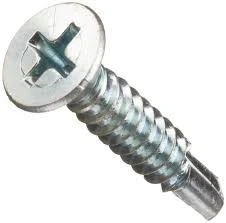Understanding the Benefits and Applications of Resin Epoxy Anchors in Construction Projects
Understanding Resin Epoxy Anchors A Comprehensive Guide
In the world of construction and masonry, securing fixtures and fittings is imperative for maintaining structural integrity. One of the most effective methods for anchoring objects to various surfaces is the use of resin epoxy anchors. These anchors are renowned for their exceptional bonding strength, versatility, and durability. This article delves into what resin epoxy anchors are, how they work, and their advantages, as well as application methods, to help you make informed decisions in your projects.
What are Resin Epoxy Anchors?
Resin epoxy anchors are anchoring systems that utilize a two-part epoxy resin—a combination of a base resin and a hardener. This mixture cures to form a strong, chemically resistant bond that can securely hold various materials such as concrete, brick, and masonry. Often used in the construction industry, these anchors come in different forms, including adhesive cartridges, packaged systems, and pre-filled sleeves that can accommodate threaded rods or rebar.
How Do They Work?
The efficacy of resin epoxy anchors lies in the chemical interaction between the resin and the base material into which they are being installed. When the two components are mixed and injected into a pre-drilled hole, the epoxy fills any voids and tightly adheres to the substrate. This bond is formed both mechanically, as the hardened resin grips the surrounding material, and chemically, as the curing process creates a lasting connection. Depending on the specific formulation, epoxy anchors can achieve their full strength typically between 24 to 72 hours after installation, making them an excellent choice for heavy-duty applications.
Advantages of Using Resin Epoxy Anchors
1. High Load Capacity One of the most significant benefits of resin epoxy anchors is their high tensile strength. They can support substantial loads and resist shear, making them suitable for heavy installations like machinery, structural supports, or outdoor fixtures.
2. Versatility Resin epoxy anchors can be used in various substrates, including concrete, brick, stone, and even some metals. This versatility makes them an ideal choice for diverse construction and renovation projects.
3. Corrosion Resistance Unlike metal anchors, which can corrode and weaken over time, epoxy resin is resistant to chemicals and environmental factors. It can withstand harsh conditions, making it perfect for outdoor use, in marine settings, or in industrial applications.
4. No Expanding Forces Traditional mechanical anchors create expansion forces as they are tightened, which can lead to cracking in delicate substrates. Resin epoxies, however, rely on chemical bonding and do not exert such forces, reducing the risk of damage.
resin epoxy anchors

5. Ease of Use Installing resin epoxy anchors is straightforward. With the appropriate tools, such as a drill and a caulking gun (for cartridge systems), both professionals and DIY enthusiasts can effectively use these anchors.
Application Methods
To install resin epoxy anchors, follow these general steps
1. Preparation Ensure that the substrate is clean and free from dust, grease, or other contaminants. Drill a hole of the appropriate size according to the specifications of the anchor system being used.
2. Mixing the Epoxy If you’re using a cartridge system, simply mix the components as instructed. For other systems, combine the resin and hardener according to the manufacturer’s guidelines.
3. Applying the Epoxy Inject the mixed epoxy into the hole until it is about two-thirds full.
4. Inserting the Anchor Insert the anchor (threaded rod, bolt, etc.) into the epoxy-filled hole, twisting it slightly to ensure good contact with the resin.
5. Curing Allow the epoxy to cure fully according to the manufacturer’s instructions before subjecting it to load.
Conclusion
Resin epoxy anchors represent a reliable and robust solution for securing fixtures and structures in various environments. Their high load capacity, versatility, and resistance to environmental degradation make them a preferred choice among builders and engineers. Understanding the proper installation methods and applications of resin epoxy anchors can enhance the safety and durability of your projects, ensuring that your installations stand the test of time.
-
Weatherproof Plastic Expansion Anchors for OutdoorNewsJun.06,2025
-
Sustainability in the Supply Chain: Eco-Friendly TEK Screws ProductionNewsJun.06,2025
-
Load-Bearing Capacity of External Insulation FixingsNewsJun.06,2025
-
Double Head Bolts: Enhancing Efficiency in Industrial MachineryNewsJun.06,2025
-
Corrosion Resistance in Chipboard Screws: Coatings for Wholesale DurabilityNewsJun.06,2025
-
Butterfly Toggle Bolts : Enhancing Structural ResilienceNewsJun.06,2025
